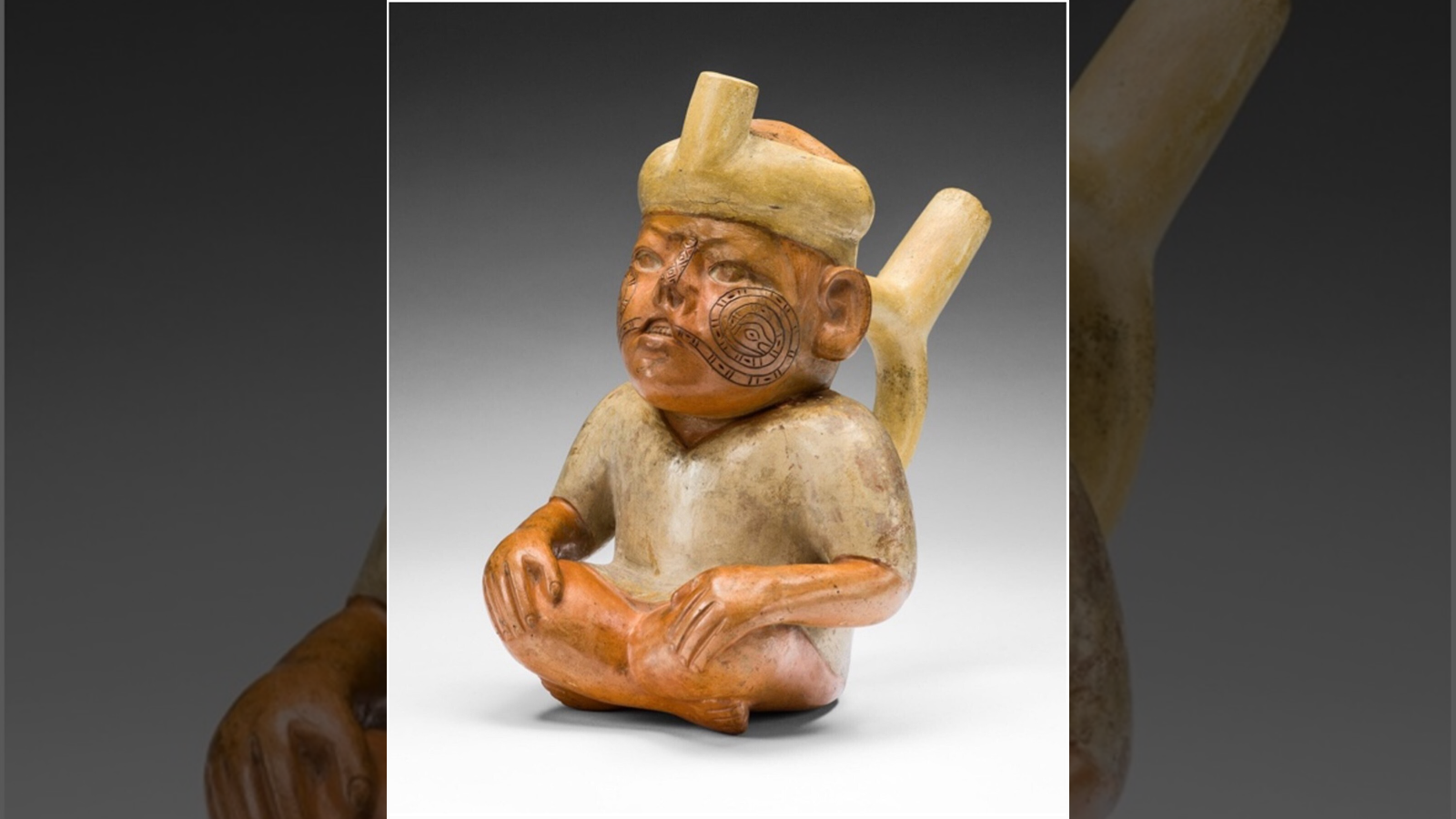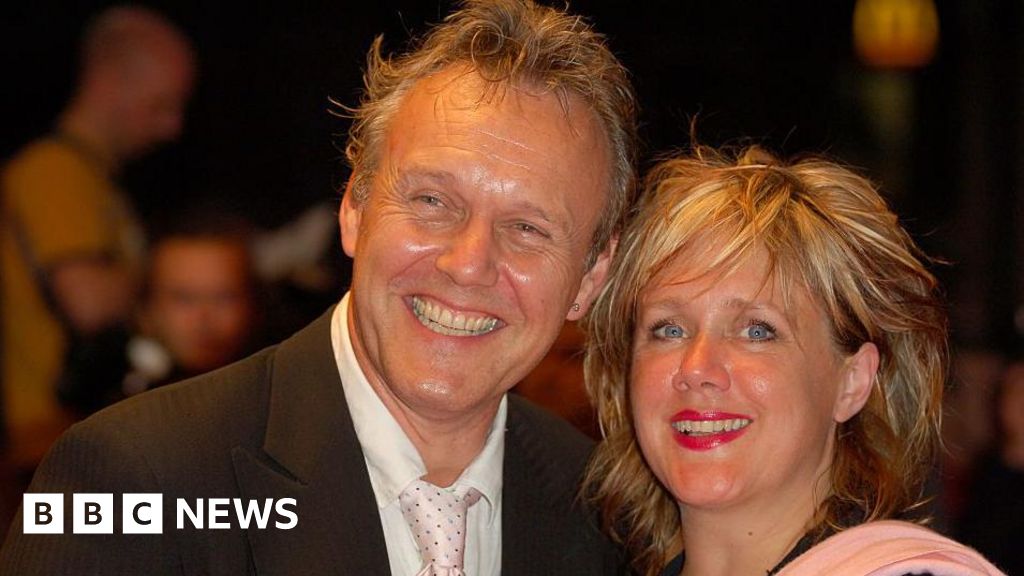As the New Year 2026 approaches, residents of Islamabad and nearby areas are gearing up for a night of concerts, food festivals, and fireworks.
Several housing projects, lifestyle destinations, and eateries in and around the capital are…

As the New Year 2026 approaches, residents of Islamabad and nearby areas are gearing up for a night of concerts, food festivals, and fireworks.
Several housing projects, lifestyle destinations, and eateries in and around the capital are…


Centuries ago in Peru, a decapitated individual’s head was turned into a “trophy.” Now, a careful look at this trophy head reveals that despite a potentially problematic birth defect, the individual survived into early adulthood.
Based on…

Pronet (Private) Limited has uncovered an alleged internal fraud involving more than $750,000, in what is emerging as one of the most significant corporate misconduct cases in Pakistan’s IT sector this year.
According to internal investigators and details outlined in a First Information Report (FIR) filed by the company, the alleged fraud involved fabricated vendor networks, shell companies, and falsified procurement documents.
The FIR takes context from Sections 420 (cheating and dishonestly inducing delivery of property) and 406 (criminal breach of trust) of the Pakistan Penal Code.
The scheme was carried out through a network of suspicious entities, including companies like Oculus, NextTech, and Webbit, which appear to have existed largely on paper. The companies reportedly had no physical offices, no verifiable operations, and no legitimate contact details.
Payment trails reviewed by Pronet revealed repeated transfers to these entities that eventually led to the discovery of a systematic scheme involving fake purchase orders and manipulated invoices designed to resemble legitimate business activity while diverting company funds.
Former Chief Operating Officer Saqib Qasim, Sales General Managers Farhan Haider and Hamid, and Head of Finance Nasir Ahmed have been named as key figures in the alleged conspiracy. Financial records, internal approvals, and email correspondence are said to link the individuals to the disputed transactions.
The matter escalated in September when Farhan Haider was arrested, while Saqib Qasim obtained pre-arrest bail. Sources told ProPakistani that although the accused have given differing accounts, they have acknowledged certain elements of the activity. No full confessions have been made public so far.
The investigation has also drawn scrutiny toward Oculus, which was formed around 18 months earlier. Several of the accused reportedly joined the company after leaving Pronet. Clients and technology partners associated with Oculus are reportedly reassessing their relationships as investigators examine whether the entity was used for the alleged diversion of funds.
Commenting on the case, Pronet’s newly appointed Chief Executive Officer Zia Saleem said the company had identified instances of financial misappropriation and initiated legal proceedings. “The matter is now before the courts, and it would not be appropriate to comment further at this stage,” he said.
The scope of the case is expected to widen. The episode has sent shockwaves through Pakistan’s IT sector.
A corporate risk and compliance expert said cases of this nature reflect recurring gaps in internal controls. Weak vendor onboarding, inadequate procurement checks, and insufficient employee vetting can allow sophisticated schemes to operate undetected for extended periods, the expert said.
“I worked for Pronet for over 16 years and helped the company achieve unprecedented growth, establishing it as one of the top Systems Integration companies in Pakistan. Unfortunately, when I decided to part ways from the company and enter into competing business, Pronet lodged a malicious FIR based on false allegations to tarnish my reputation purely out of business jealousy,” the former top executive at the company named in the conspiracy told ProPakistani.
He added, “While I am being maliciously prosecuted, I am confident that I will be vindicated by the courts inshAllah”.

Sharp drop in gold prices on the last day of the year.
In 2025, the price of 10 grams of gold increased by Rs 158,060.
Across Pakistan, the price of gold per tola fell by Rs 2,500 to Rs 456,962.
According to the All Pakistan Gems and Jewellers Association, the price of 10 grams of gold decreased by Rs 2,143 to Rs 391,771.
Meanwhile, in the international market, gold prices dropped by $25 to $4,346 per ounce.
During 2025, the price of gold per tola increased by Rs 184,362, while the price of 10 grams of gold rose by Rs 158,060. Similarly, in the global market, gold prices increased by $1,732 per ounce in 2025.

When the sale was announced on 14 December 2023, Telenor Pakistan was valued at NOK 5.3 billion on a cash-and-debt-free basis. The closing of the transaction confirms this valuation level (NOK 5.4 billion given September currency rates, subject to final end-of-year adjustments). In addition, Telenor has received NOK 0.9 billion in cash flow from Telenor Pakistan since the announcement of the transaction.
Since its launch 20 years ago, Telenor Pakistan has brought critical connectivity and digital services to over 40 million customers, including 4G technology to underserved regions and enabling digital inclusion in the country. Telenor Pakistan’s products and services have driven growth of Pakistan’s key economic sectors such as agriculture, banking and its technology freelancing communities.
The company’s journey has been defined by its commitment to empowering communities with initiatives on safe internet use, digital skills and mobile identity, promoting responsible connectivity and inclusion across Pakistan.
Telenor Group extends its gratitude to the 40+ million customers of Telenor Pakistan; to partners who collaborated to provide services to customers; and to employees whose dedication and innovation have shaped the company’s legacy.
“The completion of this transaction reflects Telenor Group’s strategy to focus on being an active owner of market-leading positions in Asia, while enabling consolidation and innovation in Pakistan’s telecom sector. As we close this sale transaction today, I want to express my heartfelt thanks to our customers, partners and especially our employees, who have been part of this remarkable story. Your support and belief in our mission have made a lasting difference in Pakistan’s economy and society,” said Benedicte Schilbred Fasmer, Telenor Group CEO.
“To the employees of Telenor Pakistan: you have been true gamechangers. Your resilience, innovation, and unwavering dedication have not only transformed the company but have made a real difference to millions of Pakistanis across the country. Thank you for your contributions in making Telenor Pakistan a beacon of progress and inclusion. As you embark on this new chapter, your legacy will continue to inspire and shape the future of Pakistan’s digital society,” concluded Jon Omund Revhaug, Head of Telenor Asia.
Click here for highlights of Telenor Pakistan’s 20 years of impact.

Alexandra BassinghamWest of England
 Peter Andrews/Corbis via Getty Images
Peter Andrews/Corbis via Getty ImagesTributes have been paid to an “extraordinary, kind and talented mother” and animal-welfare advocate.
Sarah…
Stephan, P. J. & Kenkel, J. M. Updates and advances in liposuction. Aesthetic Surg. J. 30, 83–97. https://doi.org/10.1177/1090820×10362728 (2010).
Triana, L., Palacios Huatuco, R. M.,…

Trusted Insights for What’s Ahead
CEO and executive compensation—covering the CEO and other NEOs—is disclosed annually by US public companies in proxy statements. Reported figures reflect “total compensation” which, as defined by the US Securities and Exchange Commission (SEC), records the grant-date fair value or accounting expense value of pay packages rather than realized income. Since much of CEO pay takes the form of equity awards whose value depends on stock performance and other corporate metrics, these disclosures do not indicate what executives ultimately take home.
Against this backdrop, the data provide critical insight into how boards respond to market conditions, design incentives, and benchmark against peers. Year-over-year shifts signal changes in award levels, which largely reflect stock market cycles, competitive labor dynamics, and investor expectations.
According to 2025 proxy filings, median total CEO compensation rose 11.8% in the Russell 3000 (to $6.7 million) and 6.6% in the S&P 500 (to $16.5 million), reflecting pay decisions for fiscal year 2024 and continuing a longer upward trajectory (Figure 2). Fiscal year 2024 was marked by strong equity markets (the S&P 500 rose more than 24%), cooling but still elevated inflation (around 3%), and shifting interest rate expectations. Corporate earnings rebounded, consumer confidence strengthened toward year-end after midyear volatility, and CEO confidence reflected cautious optimism. This backdrop shaped compensation decisions at public firms.

There are notable divergences in reported median total CEO compensation across industries (Figure 3). Information technology outpaces other sectors at $8.7 million for the Russell 3000, likely reflecting the premium placed on executive talent in a high-growth, innovation-driven field where equity-based pay dominates. Communication services ($8.0 million) and consumer staples ($7.9 million) are also high, pointing to scale effects in sectors with large, complex global players and significant investor scrutiny. By contrast, the financials sector stands out with the lowest reported median at $4.5 million, which may partly reflect the broader distribution of firms within financials (including many smaller banks and insurers).

The highest-earning industries also reported some of the largest year-on-year increases:
The only industry that experienced a decline this year was consumer discretionary (-3.5%), likely reflecting uneven consumer demand and margin pressures. These industry trends were also evident in the ranks of the highest-paid CEOs (Figure 4).


In terms of specific CEO pay elements, 2025 growth was once again driven by equity markets. In the Russell 3000, median base salary rose only slightly to $850,000 (+2.5%), while equity-linked components delivered the real gains: performance-based stock awards climbed 9% to $3.3 million and stock options jumped 21% to $2.4 million, reversing earlier declines.
The S&P 500 shows similar trends. With the index up more than 20% in 2024, performance-based stock awards rose 7% to $7.1 million and restricted stock gained 8% to $3.5 million, underscoring the central role of incentive equity in CEO pay. Median discretionary bonuses nearly doubled from $2.1 million in 2024 to $3.0 million in 2025, while non-equity incentive plan (NEIP) compensation payouts held flat at $2.5 million. Perquisites also rose 14%. Overall, boards capitalized on stock market gains and leaned more heavily on discretionary cash and equity grants.

There are notable differences between male and female median reported total CEO compensation, with women CEOs earning more in both indexes: 3% higher in the Russell 3000 and 11% higher in the S&P 500. However, a higher female median does not necessarily indicate a generalized pay advantage. The small number of women in the CEO population—189 in the Russell 3000 and just 35 in the S&P 500—means results are highly sensitive to a few outliers with high compensation packages. More broadly, the data underscore that the central issue is not compensation parity once in the role, but rather the persistent underrepresentation of women in the CEO ranks.
Say-on-pay, introduced in the US by the 2010 Dodd-Frank Act, gives shareholders a nonbinding annual vote on executive compensation, serving both as a governance check and a barometer of investor sentiment. While overall support remained high in 2025, investor scrutiny increased. After three years of steady gains, the number of say-on-pay proposals earning greater than 90% approval declined, and the number of failed votes—rare outcomes where support is below 50%—rose from 28 in 2024 to 31 in 2025. Warner Bros. Discovery (40%) and Thermo Fisher Scientific (35%) were among the most visible failures, with shareholders rejecting executive pay packages amid subdued performance.
The bigger shift, however, occurred in the middle range: many more companies fell into the 50–70% approval band, reflecting rising dissent even when votes passed. Notable examples included Goldman Sachs (66%), UnitedHealth Group (60%), and Pfizer (54%), where investors voiced concerns over company performance, large equity awards, or overall pay levels. Such outcomes typically trigger closer scrutiny from proxy advisors (Institutional Shareholder Services [ISS] generally flags votes below 70% support and Glass Lewis below 80%), increasing reputational and governance pressure on boards. In response, compensation committees may need to temper award sizes—particularly equity grants—enhance disclosure, and engage more directly with shareholders to explain pay design and decisions.

RSUs are a staple of many equity incentive programs. These time-based awards vest over a set period, provided the executive remains with the company. Their appeal lies in their predictability: the value realized depends only on the number of shares granted and the stock price at vesting. RSUs have become more common in long-term incentive plans, particularly among smaller and mid-cap Russell 3000 firms that value their administrative simplicity, clarity for executives and investors, and effectiveness as a retention tool. Since 2019, their use has expanded across nearly every sector.
Despite this growth, RSUs generally represent less than 40% of total equity awards. Most large companies rely more heavily on performance share units (PSUs)—where awards vest only if specified financial or operational goals are achieved. Options remain another vehicle in the mix: though proxy advisors do not classify them as performance based, options continue to appeal to boards for their direct link to stock price appreciation.

Unlike standard RSUs, which vest solely with time, PSUs vest only if specified performance targets are achieved, often tied to metrics such as earnings growth or relative total shareholder return (TSR). Since 2019, PSU adoption has risen steadily, reaching 93% of S&P 500 companies and 69% of the Russell 3000, up from 85% and 60% respectively. Usage is especially high in materials, utilities, energy, industrials, and consumer staples, though it remains lower in health care.
The expansion of PSUs has also sparked debate over their effectiveness. A 2025 study by Farient Advisors and MIT Sloan analyzed thousands of CEO pay plans and concluded that companies relying heavily on PSUs often delivered lower relative TSR and higher realized CEO pay than peers using simpler, time-based equity. The findings challenged long-standing assumptions, although they have been publicly contested and disputed. For example, a subsequent survey of over 100 institutional investors and public pension funds by Pay Governance and IR Impact found that 71% favored PSUs as the core long-term incentive, and 86% preferred they represent at least half of total equity awards.
Proxy advisors have taken note, and both ISS and Glass Lewis included questions on the appropriate balance between performance-based and time-based equity in their 2025 policy surveys. While a predominance of performance-based awards remains a positive feature of executive pay programs, investors’ views may be gradually evolving—particularly where companies use time-based equity awards with extended vesting periods that promote long-term retention and alignment.
Beginning in 2025, ISS has increased the weight of performance-vesting equity in its qualitative assessments, particularly where quantitative screens already signal misalignment. Glass Lewis has likewise recalibrated its approach, placing greater emphasis on long-term pay-for-performance alignment through expanded quantitative tests, including five-year averages of CEO pay versus TSR, incentive payouts versus TSR, and granted pay versus financial performance.

In this context, boards that fail to disclose thresholds, targets, and maximums—or that adopt equity programs viewed as opaque or weak—risk being flagged for misalignment. While outright say-on-pay failures remain uncommon, investor scrutiny has intensified in 2025, and compensation committees should be prepared for tougher questions and rising expectations.
Executive incentive pay is generally divided between STIs, which reward annual performance, and LTIs, which promote alignment and retention over multiple years. The balance between the two reflects each company’s strategy, industry dynamics, and governance expectations.

For STIs, profit-based metrics such as earnings before interest, taxes, depreciation, and amortization (EBITDA) and net income remain the dominant reported benchmark for annual bonuses, used by about 90% of companies in both the Russell 3000 and the S&P 500. Since 2019, however, usage patterns have shifted: revenue metrics have risen by roughly six percentage points in both indexes, and cash flow has also become more common, particularly in the S&P 500. In contrast, return-based measures have declined, and balance sheet metrics, while ticking up in the Russell 3000 between 2024 and 2025, have trended downward over the longer term.
Most companies rely on two STI metrics, though use of three has inched upward. Profit metrics continue to carry the highest weighting, but their share has fallen from just over 60% in 2019 to just over 50% in 2025.
Sector differences are notable. Profit is nearly universal in utilities, consumer staples, and consumer discretionary, but in real estate fewer than 60% of companies use it, with three-quarters preferring cash flow. Revenue dominates in information technology and health care (both above 80%), compared with fewer than 20% of companies in materials.

For LTIs, TSR has solidified its position as the leading reported performance measure. This is due, in part, to proxy advisors like ISS using TSR as a primary metric for evaluating quantitative pay and performance alignment. Its use has climbed from just over half of Russell 3000 companies in 2019 to more than 60% in 2025, and from just over 60% to nearly 75% in the S&P 500. Profit and revenue metrics are also gaining ground, especially in the S&P 500, where 55% of companies now use profit measures and 28% use revenue. Return-based metrics have held steady, applied by about 30% of S&P 500 firms and just over a quarter of Russell 3000 firms.
Industry differences remain significant. TSR is nearly universal in real estate and utilities (above 90%), but usage drops to around half in sectors such as communication services, consumer discretionary, consumer staples, financials, industrials, and information technology—where profit or return metrics are more common. The overlap of profit metrics in both STIs and LTIs raises potential concerns about “double counting,” which boards should be ready to explain and justify during shareholder engagement and in their compensation discussion and analysis.

Performance period duration is a closely watched feature of LTI plans, shaping how investors and proxy advisors assess alignment with long-term value creation. Three-year cycles remain the dominant design: in the Russell 3000, usage has risen from 80% in 2022 to nearly 85% in 2025, reflecting market preference for a balance of accountability and predictability.
Shorter horizons persist but remain under scrutiny. In 2019, nearly 20% of Russell 3000 companies used one-year performance periods; by 2025, that figure had dropped to 13.5%. The S&P 500 shows a similar pattern, with about 12% of companies still relying on single-year cycles. These are concentrated in sectors with greater forecasting volatility—most notably information technology (31%), communication services (27%), and consumer discretionary (19%). Interestingly, information technology also has the largest share of companies with cycles longer than three years, highlighting its use of both short- and long-horizon metrics.
Shorter periods do not necessarily set a lower bar. Long-term targets established before an unexpected boom can prove easier to exceed, while single-year periods allow goals to be recalibrated annually, sometimes enhancing alignment. Still, proxy advisors remain skeptical: Glass Lewis labels one-year periods “problematic,” while ISS views mid-cycle goal changes as a signal of weak alignment. Boards adopting shorter horizons must be prepared to explain their rationale—such as heightened uncertainty—and demonstrate how design choices preserve a pay-for-performance link.
Some companies mitigate these concerns by structuring PSUs as three rolling one-year cycles, with payouts averaged over three years and, in some cases, adjusted by a three-year relative TSR modifier. This approach preserves long-term alignment while avoiding the perception of one-year equity bonuses.

Perquisites—commonly called “perks”—are nonsalary benefits provided to senior executives, such as corporate aircraft use, security arrangements, and supplemental insurance. They are intended to support executives’ effectiveness and safety, ease travel demands, or reflect competitive practice. While perks make up only a small share of reported overall pay (median CEO perks account for about 1.5% of total S&P 500 compensation), they draw outsized attention for what they signal about corporate culture, governance, and boards’ sensitivity to reputational and investor concerns.
The SEC has made perk disclosure a focal point of its broader review of executive compensation reporting. At a June 2025 roundtable that has generated over 1,000 comment letters in response, the SEC asked whether disclosure rules affect companies’ willingness to provide perks, how difficult it is to apply the current test to items such as personal security, and how investors use data about perks. The SEC commissioner argued that disclosure of benefits like jet use and personal security has become burdensome, describing it as a “regulatory tax.”
Investor views remain divided. Some individual investors contend that if perks such as personal jet use are too costly to disclose, companies should eliminate them. By contrast, groups such as the HR Policy Association’s Center on Executive Compensation have urged the SEC to exempt certain items—particularly security—from disclosure requirements.
Security has emerged as the most closely watched perk, especially following the murder of UnitedHealth Group CEO Brian Thompson in late 2024 and the July 2025 shootings at a prominent midtown office building in New York City. These events have strengthened the case for enhanced protections, including home security, secure transportation, personal protection at public events, and greater reliance on corporate aircraft. While disclosure impacts will generally not be fully visible until 2026 proxy statements, the prevalence of security-related perks for CEOs increased from 18.2% in 2024 to 24.8% in the S&P 500, and it has doubled since 2018. Some 7.2% of Russell 3000 CEOs receive security benefits, up from 4.9% last year. By sector, such perks are most common in communication services, consumer discretionary, and utilities. These perks are particularly common among the very largest firms; as recently reported by FW Cook, 59% of the S&P 100 report personal security perquisites for CEOs, up from 49% last year.
Corporate jet usage remains the second most common perk for S&P 500 CEOs after pensions, with nearly 44% receiving it in 2025 versus fewer than 16% in the Russell 3000. Median corporate jet costs in 2025 were $151,000 in the S&P 500 and $130,000 in the Russell 3000. However, private air travel is also often provided as part of an overall security plan rather than as a stand-alone benefit. Median security costs were lower—$76,000 in both indexes—but continue to attract scrutiny.
Practices pertaining to executive perks remain a sensitive issue for boards. Decisions must balance business purpose, competitive practice, investor expectations, and disclosure requirements. As scrutiny intensifies, especially around personal security and aircraft use, companies will need to clearly explain both why these benefits are necessary and how they align with the broader pay philosophy.
The 2025 proxy season underscores both the resilience of executive pay growth and the rising expectations from investors and proxy advisors around transparency, rigor, and alignment with performance. While equity markets fueled sizable reported increases for CEOs and other senior leaders, scrutiny of pay design—spanning performance metrics, equity structures, time horizons, and perquisites—continues to sharpen. Looking ahead, boards face the dual challenge of attracting and retaining top talent in a competitive environment while ensuring compensation programs withstand governance pressures, investor expectations, and heightened external scrutiny.